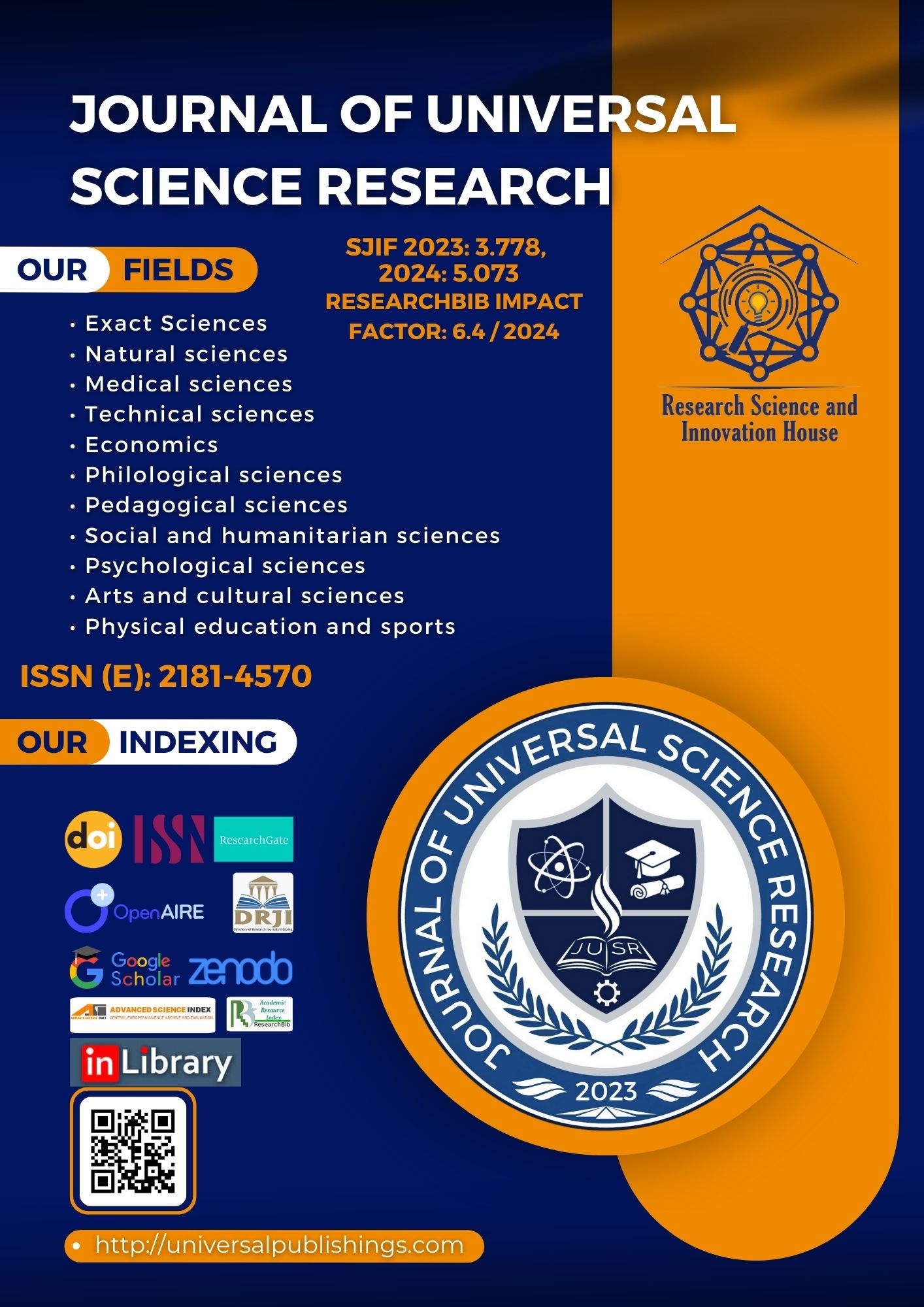Abstract
This article examines the pragmatic and stylistic aspects of neologisms in
modern English, with a particular focus on their presence in media materials and their role
in vocabulary instruction. By analyzing neologisms found in various media sources,
including online news, social media, and digital entertainment, the study identifies key
word-formation processes and explores their communicative functions. The research
highlights how neologisms serve to reflect cultural trends, engage audiences, and enrich
language expression. In addition, the article discusses the pedagogical implications of
integrating neologisms into language teaching, demonstrating their potential to enhance
student engagement and vocabulary acquisition. The findings suggest that neologisms not
only provide valuable insights into the evolution of the English language but also offer a
practical approach to modern language instruction. The study concludes with
recommendations for future research into the long-term impact of teaching neologisms
and their adaptation across different educational settings
References
1.Algeo, J. (2010). The origins and development of the English language (6th ed.).
Wadsworth Cengage Learning.
2.Cook, V. (2013). Second language learning and language teaching (4th ed.).
Routledge.
3.Crystal, D. (2004). The stories of English. Penguin Books.
4.Lehrer, A. (2003). From old words to new words: The role of neologisms in
language change. Language and Society, 32(2), 119-136.
5.Tagliamonte, S. (2016). Making new words: The role of neologisms in shaping
English. Oxford University Press.
Stockwell, P. (2002). Language and lexical variation. Linguistics and Language Compass,
6(10), 487-503.
6. Sadullaeva, N., & Bakhtiyorova, M. (2021). Reflection of Onomastic Principles
in Naming. Annals of the Romanian Society for Cell Biology, 3001-3007.
7. Бахтиёрова, М. (2024). Atoqli otlarning umumnazariy
muammolari. Зарубежная лингвистика и лингводидактика, 2(6), 40-45.
8. Ismoilov, A., & Bakhtiyorova, M. (2024). THE PROBLEM OF
COMPONENTIAL ANALYSIS OF MEANING IN PRESENT DAY
LEXICOLOGY. Current approaches and new research in modern
sciences, 3(7), 26-29.
9. Alisher o'g'li, I. A., & Bakhtiyorovna, B. M. (2024, May). THE PROBLEM OF
COMPONENTIAL ANALYSIS OF MEANING IN PRESENT DAY
LEXICOLOGY. In Konferensiyalar| Conferences (Vol. 1, No. 10, pp. 748-
752).
10.BAXTIYOROVA, M. (2024). ONOMASTIK KONSEPT
TUSHUNCHASI. UzMU xabarlari, 1(1.4), 288-292.
11.Камолова, Р. Ш., & Бахтиярова, М. (2024). ЭМОЦИОНАЛЬНЫЕ
КОННОТАЦИИ ПРИЛАГАТЕЛЬНЫХ, ОПИСЫВАЮЩИХ
ПОГОДУ. TA'LIM VA RIVOJLANISH TAHLILI ONLAYN ILMIY
JURNALI, 4(1), 30-33.
12. Baxtiyorova, M. (2023). ONOMASTIKONLARNING LINGVOMADANIY
XUSUSIYATLARI. Namangan davlat universiteti Ilmiy axborotnomasi, (9),
464-46913.Baxtiyorovna, B. M. (2023). INGLIZ VA O ‘ZBEK BADIIY ADABIYOTIDA
ONOMASTIKONLARNING CHOG ‘ISHTIRMA SEMANTIK TAHLILI. "
GERMANY" MODERN SCIENTIFIC RESEARCH: ACHIEVEMENTS,
INNOVATIONS AND DEVELOPMENT PROSPECTS, 9(1).
14.Baxtiyorova, M. (2023). INGLIZ VA O ‘ZBEK BADIIY ADABIYOTIDA
ASAR QAHRAMONLARI NOMLARINING MATN YARATISHDAGI
ISHTIROKI. Namangan davlat universiteti Ilmiy axborotnomasi, (10), 268-
273.
15.Bakhtiyorovna, B. M. (2022). Discursive-pragmatic nature of
anthroponyms. Asian Journal Of Multidimensional Research, 11(9), 110-114.
16.Bakhtiyarova, M. B. (2021). VERBALIZATION OF THE CONCEPT" ONIM"
IN LINGUOCOGNITOLOGY. Ростовский научный вестник, (3), 11-12.
17.Baxtiyorova, M. B. (2020). ANTROPONIMLARNING SHAKLLANISHIDA
MORFEMALARNING SEMANTIK VA USLUBIY
XUSUSIYATLARI. Студенческий вестник, (36-3), 96-98.
18.Bakhtiyorova, M. (2019). THE EFFECT OF USING
MNEMONICS. Студенческий вестник, (22-8), 63-65.
19.Pulatova, S., & Bakhtiyorova, M. (2019). THE STRUCTURAL-SEMANTIC
ANALYSIS OF THE WORDS RELATED TO" SPORTS" IN PRESENT DAY
ENGLISH. Студенческий вестник, (22-8), 69-71.
20.Bakhtiyorova, M., & Djumabayeva, J. (2017). WRITERS MAKE NATIONAL
LITERATURE, WHILE TRANSLATORS MAKE UNIVERSAL
LITERATURE. Студенческий вестник, (10), 55-56.
21.Bakhtiyorova, M., & Elmurodova, F. (2017). THE PRINCIPLES OF
SEMANTICS. Студенческий вестник, (10), 52-54.
22.Bakhtiyorova, M., & Elmurodova, F. (

This work is licensed under a Creative Commons Attribution 4.0 International License.

